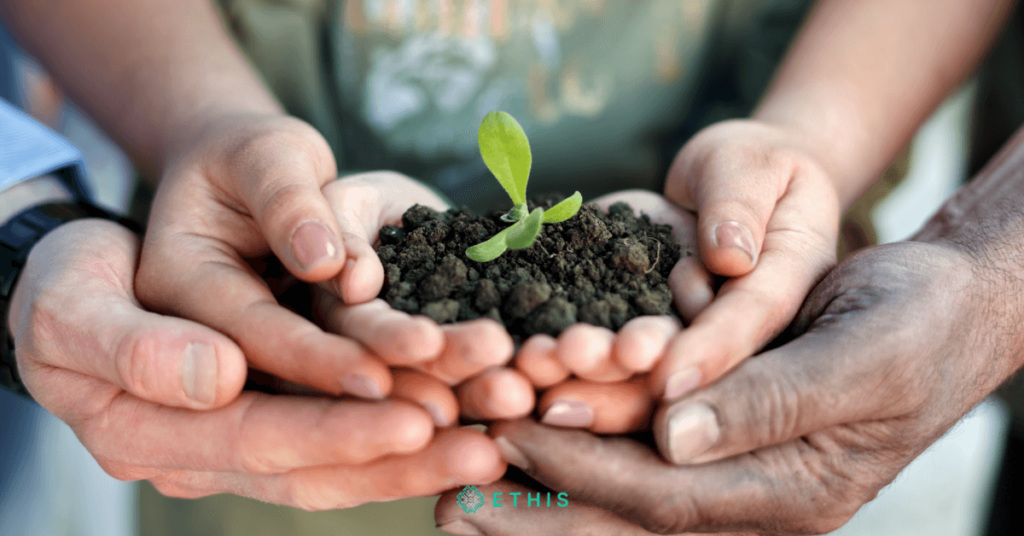
An Interview with Blake Goud, CEO, RFI Foundation
Q: Blake, you have been very much involved in the sustainable development of the Islamic finance sector, including being eco-friendly and sensitive to environmental and climate impact. How far do you think the sector has embraced this concept, and what can be done to promote it across the sector?
A: There has been uneven progress in Islamic finance so far in how environmental and climate change related issues have been incorporated. It’s always been very relevant for Islamic finance to have a concern about whether it’s contributing to good stewardship of the natural environment but to take an example when RFI was established more than 6 years ago, only a few Islamic financial institutions were talking about how their financing and investments affected the environment or contributed to the mitigation of climate change. Other issues were viewed at the time as more important, but things have changed dramatically as people have seen more stark evidence of the negative impact of climate change, and as regulators and other stakeholders have moved climate change and the environment up their list of priorities from a risk perspective.
One of the critical things that Islamic finance has needed to take action on is understanding better the direct and indirect environmental and social impact. If these environmental and social impacts are viewed as more of a nice add-on to what the financial sector is doing, it can get lost in the mix. Now that there is a clearer understanding of the relationship between environmental stewardship, climate mitigation, social issues relating to community welfare and resiliency and financial risk and financial returns, it is starting to stand apart from other things that might have been seen as competing for the same attention and scarce resources in the past. This shift was beginning to take place in 2018 and 2019, but with the COVID-19 pandemic hitting, it put such a focus on how much of the normal status quo that we assume will always be there can be dramatically changed.
Q: Recent developments in Environmental, Social and Governance (ESG) criteria which investors nowadays often use to screen potential investments are invariably going to have a bearing on Shariah-compliant ethical investments as well. What is your take on this?
A: The ESG criteria need to be defined carefully to be useful. Backwards looking data is useful in some cases to see what relationship there is between a company’s environmental & social impact and its financial performance, but the data that’s been used in the past isn’t fit to tackle many of the challenges coming up. Looking at whether companies have a policy about a topic will give one perspective of their exposure. Looking at how much the policy has been implemented will tell a bit more, but it’s still incomplete. Take climate change as an example. Most of the world doesn’t put a price on carbon at all, and even where one exists, it doesn’t always reflect the total of all the environmental and social costs of climate change.


Looking backwards at how much a company emitted under those conditions won’t tell you anything about how they will react if, for example, they export to the European Union and all of a sudden in a few years it will face an additional cost of $50 – 60 per tonne of carbon emissions on its exports to Europe. The types of ESG disclosures are going to change from backwards-looking to forward-looking and start offering a lot more information. If an investor is trying to combine ESG and shariah screening, they may not have the best results by just picking the best companies from a backwards-looking ESG screen and then selecting the shariah-compliant ones from that universe.



It’s going to take a lot more digging into the ways that different types of ESG integration affect your investments, and then looking at how that process will be affected by screening for Shari’ah compliance. For example, the exporter I used as an example before was facing a loss of competitiveness in export markets once a carbon price is introduced in its destination market, it can still be resilient in the future. It will need to change the way it produces its products to be more energy-efficient and it may have 2-3 years to implement that change and have to raise financing to do so. A shariah-compliant company (which will have lower debt) may have more flexibility to make these types of investments than a company that doesn’t meet the shariah screening criteria for leverage ratios. The shariah screens in this case may help separate companies based on their level of resiliency to future changes about ESG issues. Sometimes, that may be things like carbon border adjustment taxes that companies and investors have visibility of a few years out, but sometimes, as we’ve seen with the COVID-19 pandemic, they are much more abrupt.
Q: New developments in Fintech and crowdfunding which have been seamlessly adapted to Islamic requirements are having a huge impact on mobilising investments for sustainable development projects and other noble causes. Do you think they can be employed in a meaningful way to support sustainable eco-friendly business activities as well?


A: Fintech is perfectly suited for the direction in which things are headed with responsible finance and ESG because the number of data points that will need to be considered in addition to the core financial inputs for projects is going to increase significantly. That will affect everyone in the financial sector, including banks, asset managers, crowdfunding platforms.
Crowdfunding probably gains an advantage in considering the sustainability of the businesses it finances. Large investment firms or banks will be able to bring in a lot of specialised knowledge about what ESG issues they consider, and how they are likely to affect financial outcomes, but it may take time to embed those capabilities systematically. Investors who are looking at a crowdfunding platform and picking between two different projects will have a very hard time on their thinking about whether a specific project is vulnerable to climate-related risks, or think through the impact that their investments could make.
Unlike the big companies that are somewhat stuck with old technology underneath their decision-making processes, Fintechs already have the understanding about how to bring technology to bear on their financing products to create efficiencies. It will take time and effort for the platforms to build in ESG related tools and impact measurement tools, but they and their users are comfortable using technology across all aspects of their investment process, so they should be much more able to incorporate new approaches than traditional financial institutions.
Read more about Equity Crowdfunding





Top Posts
Islamic P2P Crowdfunding Explained
Halal Money Matters: How Muslims Can Balance Deen and Dunya with Smart Islamic Finance
Halal Investments for Singapore Muslims? It’s time for a shake-up in the Islamic Investments scene.
Smart investment for making Halal money
3 Reasons Why Property Crowdfunding is the Smart Investment for You